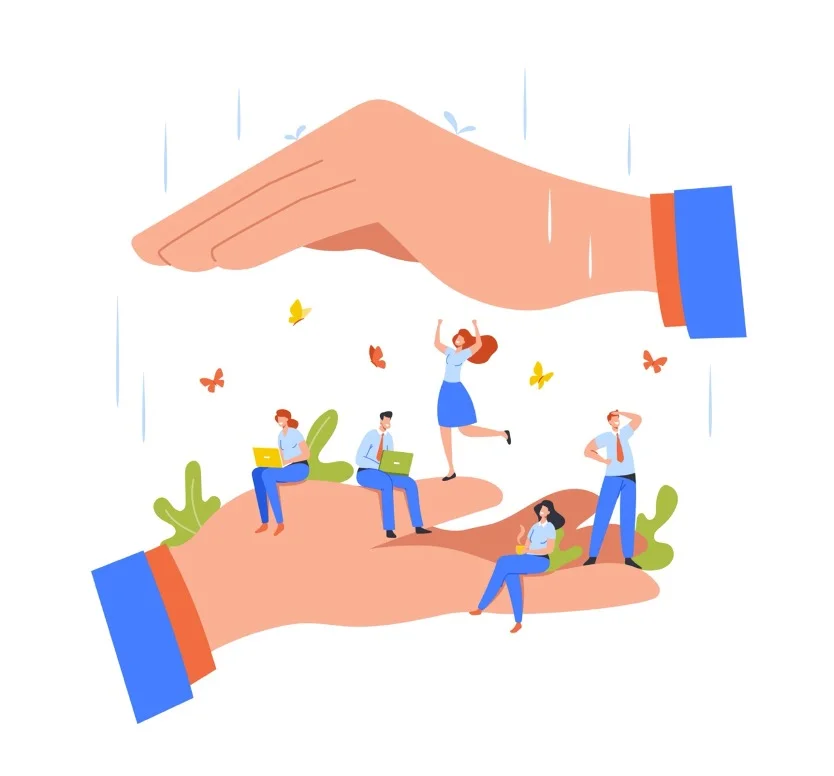
Rashmi Datt
rashmi.datt@gmail.co

Executive presence is something that is desired, yet it has an elusive and mysterious quality to it.
What Exactly is Executive Presence?
It has been variously described as:
Showing up as ready for your next promotion.
The missing link between MERIT and SUCCESS.
‘It factor’- a heady combination of confidence, poise, and authenticity that convinces the stakeholders they are in the presence of someone who’s going places.
Executive presence is not just a measure of performance. You have reached a certain level, so competence and functional expertise are assumed. It is said to be a measure of image: whether you signal to others that you have what it takes, that you are leadership material.
Jack Welch, the well-known earlier chairman and CEO of General Electric, said, “Executive Presence was like a unique fingerprint- and included communicating confidently and clearly, and essential to advance your career.”
The definitions and descriptions above create an impression that Executive Presence is about ‘ME.’ The ability to be in the centre of the room without hogging all the attention; a general sense of poise, confidence, decisiveness and dignity; the ability to get results.
But in reality, Executive Presence is moving beyond the self: It is the ability to simultaneously pay attention to all 3 factors: INNER (managing own agenda, as well as self-awareness- as a myriad of emotions do come up in interactions- anxiety, irritation, along with curiosity, courage and respect), OTHER (the reactions and emotions of the person/s you are with), and OUTER (the larger picture, the agenda).
Paying Attention to the INNER with Compassion
One of the spaces where Executive Presence is very much needed is when entering ZOUD (Zone of Uncomfortable Discussion).
‘It is an Uncomfortable Discussion’ because there are likely to be emotions such as disappointment, frustration, anger, and anxiety accompanying you.
If they simmer somewhere inside, unacknowledged, they have the power to either derail the conversation, cause the key issue to be side-stepped, or be so caught up with your own needs that you are unable to pay attention to the other.
It is helpful to name the emotions, know they are legitimate, and welcome them. It enables you to click through to learn what lies inside rather than resisting them.
You fully feel the pain so that you can heal. You open your heart to it and accept it without wallowing in the emotions. Listening to your emotions will help you to make the necessary changes instead of getting angry with yourself and not thriving.
And this requires, first of all, to be compassionate with yourself. As John Steinbeck American author and the 1962 Nobel Prize winner in Literature said, “If we could learn to like ourselves, even a little, maybe our cruelties and anger might melt away.”
Being Compassionate with Other
Here are 3 suggestions for dealing with ZOUD:
Make it about ‘YOU and me’ instead of ‘MY thoughts and feelings’.
Instead of saying, ‘I have some challenges at work, which I want to discuss with you’; say: ‘I realize I’m missing some dots. Can we spend some time talking about the big picture so that I can support you better in the way we work together?’
Keep sight of the big picture: it will help you to give in to smaller less important issues. Sometimes we get so caught up with ‘drawing boundaries’ OR ‘stating our needs’ that we forget to bring flexibility with lower priority items.
Challenge yourself to become a ninja of ‘Dealing with angry resistance through calm persistence’.
Here is an example of how a CEO was able to bring about a change in his manager by using compassion.
The CEO was getting impatient with one of his managers (let’s call him Sanjay). Sanjay was leading the meeting, was not keeping track of time, kept dwelling on micro-details, and went on tangents. And this was also the way he tackled his job. The CEO had given exasperated feedback to Sanjay about this before. Somehow it just didn’t sink in.
Then the CEO changed track. With a burst of inspiration he let go of irritation, and bringing compassion, he said, ‘Sanjay, I know you are keeping an eye on time vis-à-vis the agenda and tracking of the big picture. And you are focusing on the frogs to eat vs the easier jobs you enjoy and are comfortable with.’
Something clicked—inner programming between the two changed, and Sanjay’s eyes sparkled. The meeting took a different tone. Sanjay was able to shift his behaviour, move on to the bigger picture and keep a sharper track of time.
Being ‘present’ helps you find flexibility in your style. And to acknowledge when an emotion (like anger or impatience) is becoming dysfunctional. Self-awareness and compassion provide flexibility from our rigid stances, which we tend to take up in times of stress.
Why should I sugarcoat if I see nothing admirable?’ is a common question. American psychiatrist Theodore Isaac Rubin answers it with, ‘Kindness is more important than wisdom, and the recognition of this is the beginning of wisdom.’ It is our arrogance and rigidity that makes us assume that there is no ability in another individual.
This helps us to move from ‘The Love of Power’ to the ‘Power of Love.’
The Importance of Centering Ourselves
How to access our compassion and connectedness with the other when our thoughts and energies are scattered? We feel impatience when there is a conflict or anxiety when we are in a dilemma. ‘Should I speak or not?’ We are frazzled with mind chatter, which shatters our sense of inner focus and attention.
What we need to do is to centre ourselves.
If you were asked to locate ‘self’ in your body, where would you do it? Do you know that the physical centre (of gravity) of our body in a standing posture is typically about 10 cm lower than the navel, near the top of the hip bones?
Centring ourselves can also mean finding the embodied centre.
In Japan, the centre is ‘Seika-no-itten’, the one point, the still point, the intersection of mind and body.
Being centred means:
-Being present to the self: living here, living now, a point-to-point sensory contact with reality;
-Efficient use of human energy
-Taking action from a place of calm;
-Being self-reliant: Self-sufficiency and independence grow.
It means developing Balance, Resilience, Insight, and Empathy.
‘Centered Boss’ vs Boss-Centered’
I was speaking to a colleague whom I had met only a few times and about 25 minutes into the conversation, I looked discreetly at my watch.
We had not planned a closing time for our meeting, though I had mentally set it at half an hour.
He immediately said: ‘Oh, you have to go?’
He had followed my eye movement to look at my watch, that too over a video call!
You have met these people, who I call the ‘Centered Boss’, who are closely tuned into the other.
For example, they take one look at you and say:
‘You look tired today. Go home early and get rest’.
Or
‘I know you are going through a tough time. It’s not easy, but we must finish XY by tomorrow.’
The opposite is a ‘Boss Centered’ Individual who is so task-focused that the human connection gets lost.
The focus of the latter becomes ‘my agenda,’ and the anxiety to achieve it is so strong that it hijacks the capacity to see the other. One outcome is pushiness, erasing the needs of others, resistance, aggressiveness, and imposing the self on others.
But the ‘Centered Boss’ simultaneously keeps track of the inner (own feelings, needs, expectations), Other (others’ body language, expressions) and Outer (the agenda).
Compassion at the Time of the Pandemic
In conclusion, how are these ideas applicable to the current crisis of the pandemic and the accompanying stress and ambiguity?
The pandemic has been a time of self-reflection for many of us and has highlighted how we interact with each other, what our priorities are, and how we communicate with our team during a crisis.
It has raised the important question: How do you reassure your team that you are there for them, connect with compassion, and yet expect performance? Can you do both?
As leaders search for answers as to how to be empathetic and authentic and still conduct business, we can pay attention to the three areas mentioned in this article:
1. Inner: What is happening inside us? If we don’t acknowledge the huge anxiety inside, it is likely to ‘escape’ in the form of freeze, flight or fight reactions. Some leaders believe we have to put on a brave front of ‘positivity’ and ‘confidence’.
The more we know ourselves, the more we can regulate our responses and choose that we present that of an authentic leader who doesn’t know the answers but has the strength and wisdom to work out things together.
2. Other: To be in tune with the thoughts, feelings, and behaviours of the team members.
3. Outer: What are the systems and structures we, as an organization, are putting in place to support and take care of our employees?
Photo by Kevin Sloan
Posted in Talent Management | No Comments »
Recent Articles
- Role of Leaders in Team Network Interpersonal Skills
- Unlocking the Tapestry of Learning & Development: a Journey through Time & Networks
- Aarohi – As The Flight Leaves The Land
- 20% Time – Innovation through playfulness
- Workplace Culture of Playfulness: Creating an environment of humour and positivity
- We Aren’t Paying Enough Attention to Humor in the Workplace
- Three quotients to manage talent
- Seriously, What’s so Funny?
- Happy Souls at Work: Playfulness Well-being Productivity
- The Joy of Work: Building a Culture Where Playfulness Meets Performance
- Corporate Learnings from ‘Mogambo’ – The Iconic Villain of Indian Film Mr. India
- Talent Development and Succession Planning for Organizational Sustainability
- An Ideal Workplace – Happy & Fun!
- The role of leadership in encouraging a playful environment
- Injecting Joy into Work: The Benefits of a Playful Office Culture
- Five on Five: Five Leadership Styles for Five Generations ACT & LEAD!
- The CEO’s Dharma: Leadership Lessons from Narada’s Inquiry
- 3-D Leader: BANI and Heart Economy
- The Talent Management Odyssey: A Quest for the Holy Grail of HR
- Generation Z in the Workforce: Challenges and Opportunities
- Talent Management in Post-Independent Indian Governance- A Case Study
- Pareto Principle in the Workplace
- Breaking Good: Sabbatical leave- A comprehensive insight
- Prosocial Emotions as Lever for Employee Engagement
- The Table with the lady
- Can Compassion and Executive Presence Co-exist
- Empathetic Organisations are not Built Overnight !
- Employee Excitement
- Women, Leadership and opportunities
- Corporate Diversity & Inclusion
- Connections in the time of Covid
- Developing connect with the missing shift employee
- Becoming the employer of choice in the new normal
- Open Secret to Build a Culture of Sustainability through GHRM (Green Human Resources Management)
- Green HRM: Building a Culture of Sustainability
- Cultural Lens
- Trust Credibility
- Organizational Culture and Covid-19: An employee’s perspective
- Culture: Fostering Values for Unleashing Human Potential
- Psychological safety in a team: Whose responsibility?
- “Dispelling the fear of failure – Nurturing innovation and experimentation”
- Fighting Fear through Growth Mindset & Experimentation
- Situational Leadership: A Brahmastra
- ONGC Succession Planning
- Leadership
- Unleashing the Power of failure and Innovation: A Call to Action for Indians in the 21st Century
- Managing Executive Obsolescence for Career Growth
- Action Learning
- The Best Coach to Rewire people
- The eLearning series: A practitioner’s take
- Learning in the Flow of Work – Lets step up the Game
- E-learning a practitioner’s take- Part 2
- The Forgetting Curve – The best ways of Memorising & Learning
- Leaders as teachers
- The New India – Post Covid
- Learning & Development Gamified
- About Fear, loneliness and Exile at Workplace
- My Journey as a Coach-Leader
- Lessons from Ramayana
- Delivering Happiness through CSR
- Story of positive transformation
- Conquering the fear of failure
- Role of organization culture and values in growth of human potential
- The cost of Failure is…Learning!
- Talent Experience
- CSR Initiatives: The Key Drivers for India’s Sustainable Development Growth
- Gaining Wisdom from the Mahabharata
- Six Thinking Hats – A Decision Making Technique
- Next Normal of Talent Acquisition
- Talent Experience
- Role of Spirituality in effective Human Resource Management
- The ‘next normal’ workplace – A generational perspective
- The Pursuit for Recognition
- How to make Innovation an integral culture of an Organization
- Nuturing Talent – For Organisational Growth
- How Google Sold Its Engineers on Management
- Talent Leadership: Perhaps the new Talent Management
- Words have Power
- The Ultimate Team Game!
- The ‘Feedback Fridays’
- Talent Experience
- Pursuit of Dominance
- How Does Anticipated Emotion from a Decision Outcome Determine Our Ethical Behaviour? A Working Paper
- Talent Management
- From failing to innovating: Role of HR in promoting experimentation
- Unleashing the Power of Talent Management: Lessons from History to Modern Day
- Embracing Evolution: Behavior-Based Hiring and Technological Synergy for Organization’s Future Workforce
- Transforming Workforce Recruitment
- Data-Driven Play: Leveraging Analytics in Gamified Hiring
- Rational Recipe To Recruitment: Future Of Hiring
- Redefining the hiring recipe: Recruiting candidates beyond the resume!
- The Power of Attitude: Why Employers Seek the Right Mindset
- Principles of Recruitment
